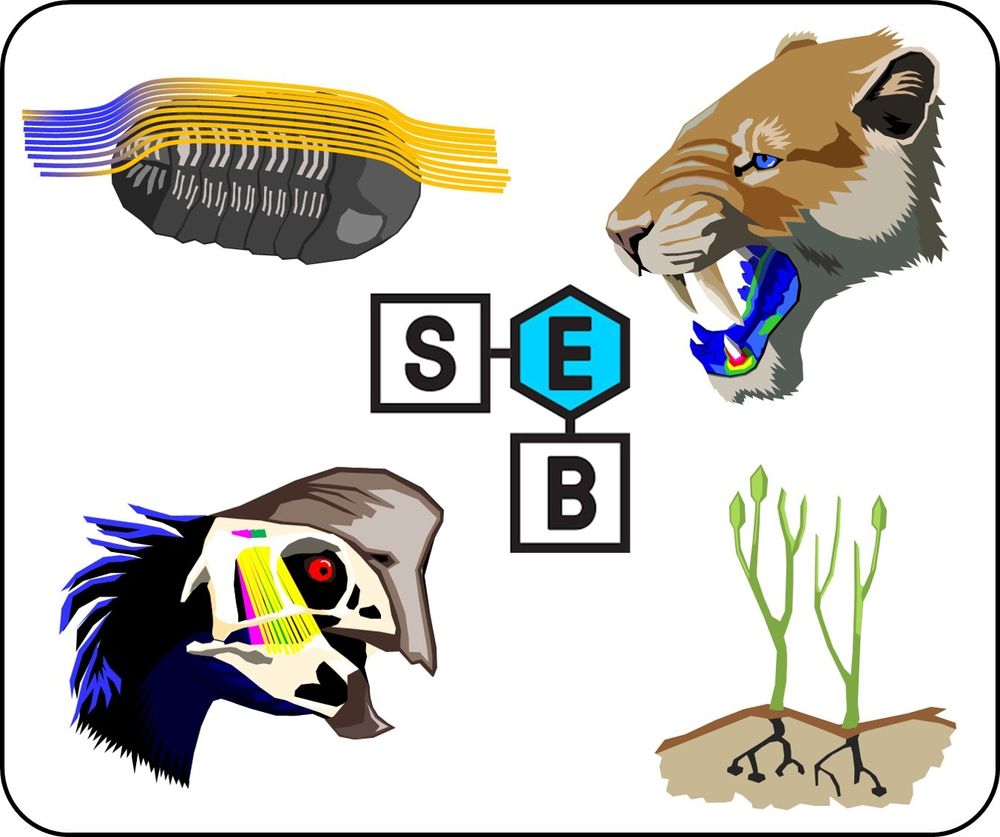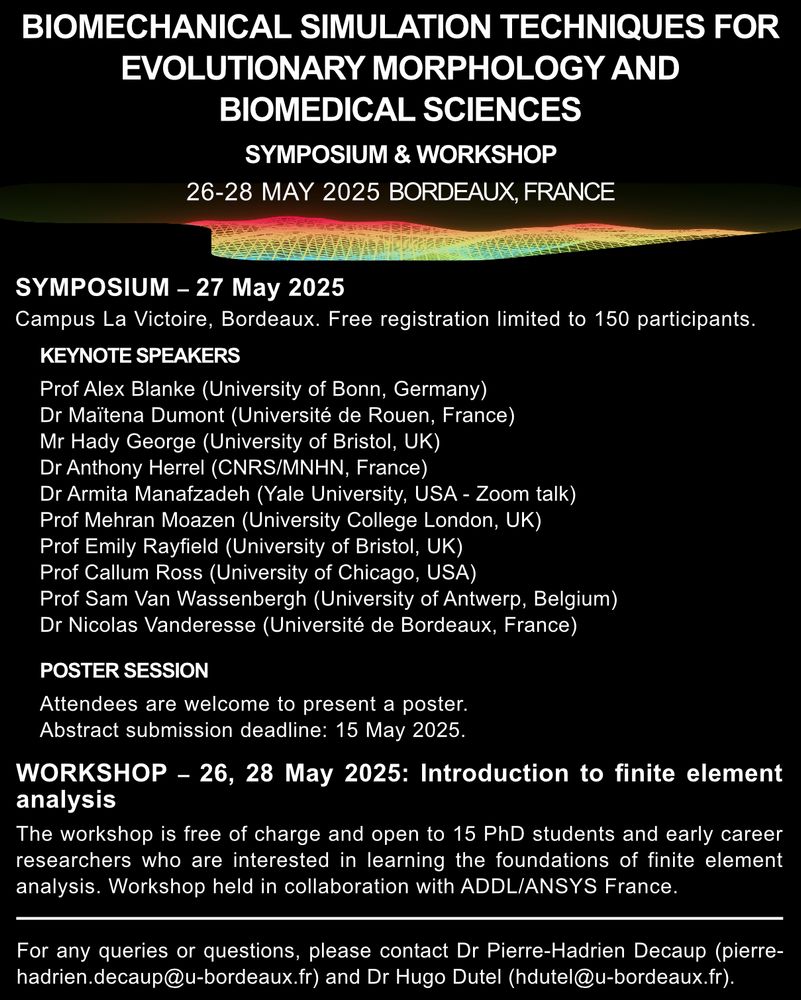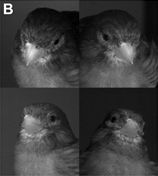
https://www.uantwerpen.be/en/research-groups/funmorph/

Here are some of the animals that keep us busy at the moment.
@uafunmorph.bsky.social
doi.org/10.1038/s420...

@uafunmorph.bsky.social
doi.org/10.1038/s420...




#SEBExPalaeo will be live at #SEBCONFERENCE
9h30 in Nightingale 1&2
(follow signs for Bird Rooms)
Looking forward to seeing you for plenty of experimental #palaeontology #palaeobotany #3D #modelling and fun discussions!

#SEBExPalaeo will be live at #SEBCONFERENCE
9h30 in Nightingale 1&2
(follow signs for Bird Rooms)
Looking forward to seeing you for plenty of experimental #palaeontology #palaeobotany #3D #modelling and fun discussions!


26-28 May 2025 | Université de Bordeaux, France.
Symposium and workshop :
Biomechanical simulation techniques in evolutionary morphology and biomedical sciences.
More info and registration: www.eventbrite.fr/e/1263754958...

26-28 May 2025 | Université de Bordeaux, France.
Symposium and workshop :
Biomechanical simulation techniques in evolutionary morphology and biomedical sciences.
More info and registration: www.eventbrite.fr/e/1263754958...

#ExPalaeo

#ExPalaeo
Perhaps the @sebiology.bsky.social Annual Meeting special session "Experimental Palaeontology" #SEB_ExPalaeo is something for you?! (1/n)

Perhaps the @sebiology.bsky.social Annual Meeting special session "Experimental Palaeontology" #SEB_ExPalaeo is something for you?! (1/n)
More details to follow soon!
@narimanechatar.bsky.social
@peterfalkingham.com
@sesamoidstreet.bsky.social
@sebiology.bsky.social

More details to follow soon!
@narimanechatar.bsky.social
@peterfalkingham.com
@sesamoidstreet.bsky.social
@sebiology.bsky.social
In my newest article, published in The Conversation, you can learn about how beak size affects the singing and #evolution of songbirds. 🪶
theconversation.com/hard-bites-a...
#ornithology #scicomm #science

In my newest article, published in The Conversation, you can learn about how beak size affects the singing and #evolution of songbirds. 🪶
theconversation.com/hard-bites-a...
#ornithology #scicomm #science
In her newest article, published in The Conversation, #UAFunMorph member Maja Mielke writes about how beak size affects the singing and #evolution of songbirds.

In her newest article, published in The Conversation, #UAFunMorph member Maja Mielke writes about how beak size affects the singing and #evolution of songbirds.

In her newest article, published in The Conversation, #UAFunMorph member Maja Mielke writes about how beak size affects the singing and #evolution of songbirds.
Here are some of the animals that keep us busy at the moment.

Here are some of the animals that keep us busy at the moment.

